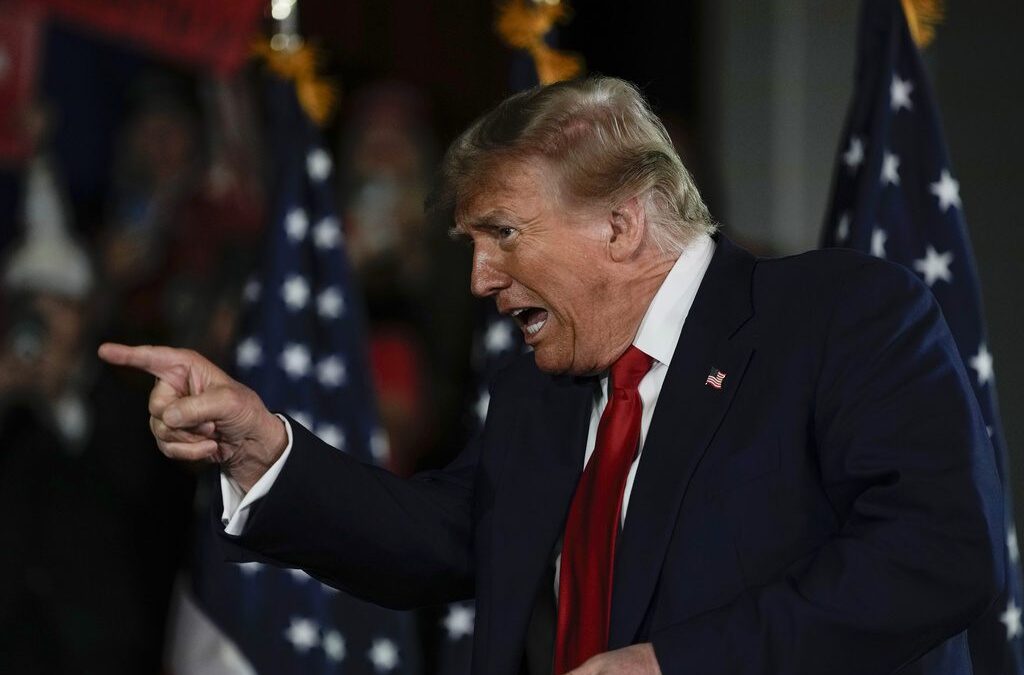
Laws passed by Republicans in the legislature—and vetoed by Gov. Hobbs—would have made what happened in August at the University of North Carolina more likely to happen in Arizona.
With classes at Grand Canyon University beginning this week, nearly every school in Arizona is now back in session. But in addition to calculators and three-ring binders, one state legislator wanted to give students the opportunity to add a new line item to students’ back-to-school list:
Military-grade, rocket-propelled projectiles.
“The founding fathers clearly intended for us to have weapons of war,” said Scottsdale Republican Rep. Alexander Kolodin. “By my way, this committee would be hearing bills about us legalizing rocket launchers.”
The Push for More Powerful, More Prevalent Firearms
Kolodin’s remarks were made during a February Arizona House Judiciary Committee meeting during a discussion about House Bill 2544, which would have allowed state weapons manufacturers to circumvent federal firearm regulations.
If this bill had become law, critics worried it would open the floodgates for unreported, modified weapons in Arizona—such as a bump stock, which the shooter used in the 2017 Las Vegas shooting as a way to shoot more rounds and increase casualties. While a national ban on bump stocks was overturned in early 2023, HB 2544 would have allowed Arizonans to avoid future bans.
In addition to introducing legislation that would have made it easier for gun dealers to sell more powerful weapons, Republicans in the Arizona Legislature proposed several bills that aimed to prohibit places like universities from banning firearms from campus.
Specifically, Sen. Wendy Rogers (R-Flagstaff) introduced Senate Bill 1300, which sought to prohibit universities from preventing anyone with a concealed weapons permit from bringing firearms on campus.
“People see the writing on the wall, they see our culture becoming more violent,” Rogers said. “They see assaults on infrastructure, they see assaults on human beings, and they simply want to defend themselves.”
Some Zones Are Gun-Free For a Reason
But in one of the more violent scenes in recent US history—the January 6 Capitol attack—the absence of guns in the hands of insurrectionists likely minimized casualties among rioters, law enforcement, and members of Congress. Former President Donald Trump wanted more guns on the scene, and his team allegedly discussed using the Insurrection Act as a way to crack down on potential protests against his attempted power grab to remain in the White House.
History has also shown the idea of a “good guy with a gun” taking on an active shooter to be a myth. There were people with firearms on the scene of both the Uvalde and Buffalo mass shootings, and in neither instance did they step in to stop the shooter in time to save lives.
Columbia University conducted a study in 2022 to determine the effectiveness of gun-free zones and the likelihood that a defensive gun carrier would stop an active shooter. Researchers found that, “defensive gun use during active shootings was rare, usually does not stop the attack, and does not decrease the number of casualties compared to active shootings without defensive use.”
Lawmaker Recalls Active Shooter Experiences
Together, these proposals would have allowed anyone with a concealed weapons permit to bring high-powered firearms on university campuses, despite nearly every private and public higher education institution in Arizona being designated as a gun-free zone, as required by the Arizona Board of Regents.
Nonetheless, Rogers—and Tucson Rep. Rachel Jones, who sponsored the House version of the bill, House Bill 2667—used the “good guy with a gun” argument to justify the proposal. Rep. Melody Hernandez (D-Tempe) was quick to point out the problem with bringing more guns on campus.
Hernandez, who also works as a first responder, recalled several instances where she had been called to provide support in an active shooter situation. Even in the event someone armed attempted to stop the shooter, Hernandez argued, there was no way law enforcement could determine who was the defender, and who was the assailant.
“In one recent scene, we were looking for the shooter while working with victims,”said Hernandez. “If now we’re putting other people who are trying to be good actors in this situation, I’m concerned that then their lives would be in danger, because law enforcement sees them retaliating or trying to defend us. And all of a sudden, maybe law enforcement thinks, maybe they’re the bad guy with the gun.”
Both Proposals Passed Along Party Lines
Despite the testimony from Hernandez, campus law enforcement, and growing support for gun safety laws among Arizonans, both Kolodin and Jones’ bills were passed by the Republican-led state legislature.
They failed to go into effect, however, as Democratic Gov. Katie Hobbs vetoed both proposals. In her letters explaining the vetoes, Hobbs stated that the implementation of these laws could “lead to greater anxiety among students, staff and faculty,” and “lead to ambiguity and confusion when state and federal laws diverge.”
Politics

New Biden rules deliver automatic cash refunds for canceled flights, ban surprise fees
In the aftermath of a canceled or delayed flight, there’s nothing less appealing than spending hours on the phone waiting to speak with an airline...

Trump says he would allow red states to track pregnancies, prosecute abortion ban violators
In an interview published by Time magazine this week, former president Donald Trump detailed his plans for a potential second term and said he would...
Local News

Arizona’s Democratic governor signs a bill to repeal 1864 ban on most abortions
PHOENIX (AP) — Democratic Arizona Gov. Katie Hobbs has relegated a Civil War-era ban on most abortions to the past by signing a repeal bill...

VIDEO: Gov. Hobbs signs bill repealing Arizona’s 1864 abortion ban
@coppercourier Today Democratic @govhobbs signed a bill repealing Arizona's 1864 abortion ban. This doesn't mean the ban is gone now,...





